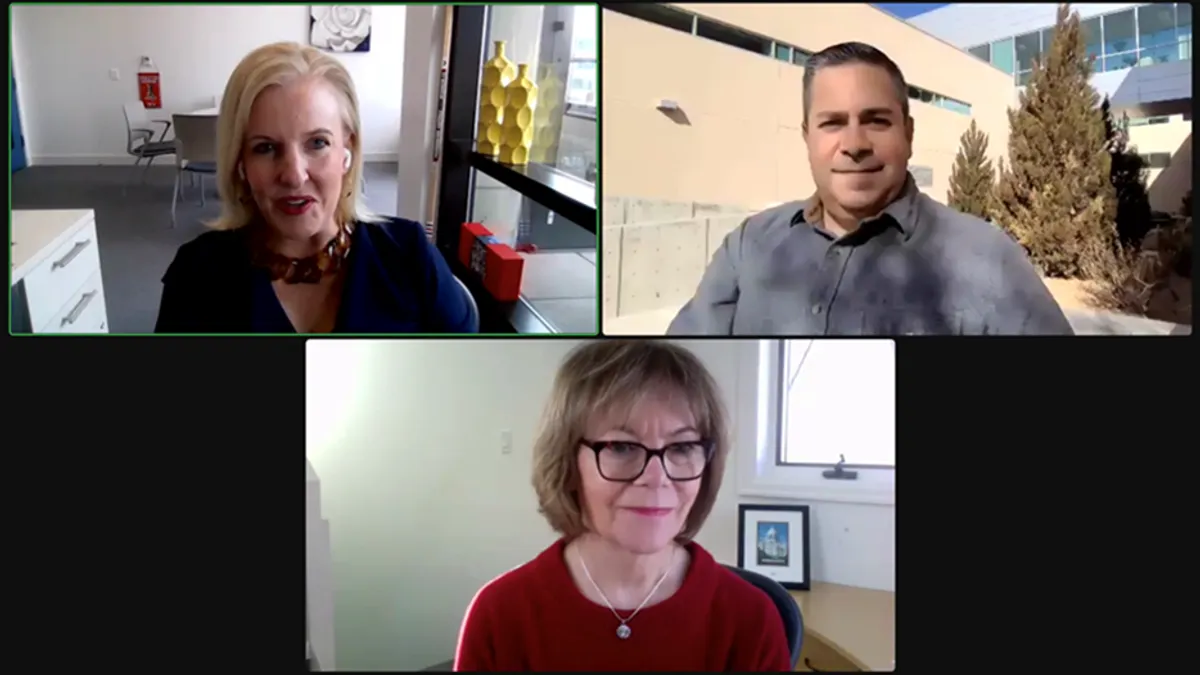Dive Brief:
- Extending clean energy tax credits separate from the Build Back Better bill, which stalled in the Senate at the end of 2021, could be a "key component" to achieving climate goals, Sen. Tina Smith, D-Minn, told a virtual crowd at a Solar Energy Industries Association event Tuesday.
- Without an extension, the wind production tax credit will expire at the end of this year, while the solar tax credit will begin to phase down. As a result, industry experts have agreed that prices would increase for renewables development.
- "It might not be called 'Build Back Better,' but there is a path forward particularly on the climate provisions," Smith said, adding that Sen. Joe Manchin, D-W.Va., has not opposed those pieces.
Dive Insight:
President Joe Biden made comments last week on the potential of breaking up the White House's Build Back Better framework, in order to pass components of it.
"It’s important for us all to remember that the climate provisions in the old bill are powerful towards moving us toward our goals" for decarbonization, Smith said.
Democratic leadership must now "figure out what has 50 votes, and then pass what has 50 votes," she said. That includes provisions that would extend production tax credits and investment tax credits for wind and solar, according to Smith.
The extension of the tax credits would also include energy storage projects paired with renewables.
"As a practical matter, it’s hard for me to see new things being added to the suite of tax credits that we have been working with, in the Build Back Better package," Smith said. Despite that, she said a tax credit for standalone energy storage would be important to support the industry.
Other climate provisions that the Democrats discussed moving forward included the Build Back Better component that would address clean energy job development in communities that relied on fossil fuel industries, "to use these manufacturing opportunities as a way to smooth these clean energy transitions... from fossil fuel precedent to clean energy future," Smith said.
"We need a big movement behind this legislation, but we also have to avoid anything that splinters support," Sen. Ben Ray Luján, D-N.M., said during the Tuesday online event. "No matter what it is that we are able to adopt this year whether it's the Clean Electricity Standard or something else," work can continue to improve it, he said.
A federal clean energy standard would be particularly important, he said, to spur the states that have not set their own clean energy standards toward decarbonization.
Biden announced a meeting on Jan. 26 with top U.S. executives at the White House regarding the future of Build Back Better. Among the invitees, the CEOs of Ford and Microsoft will be in attendance.















